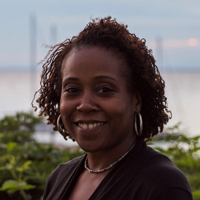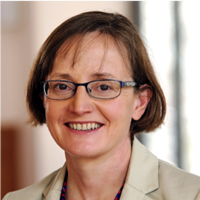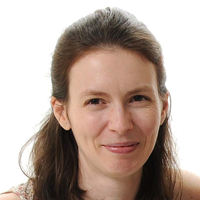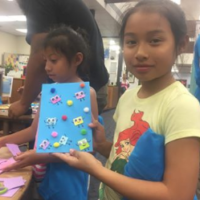CRA Welcomes New FY 2018 Board Members
July 1 marked a new fiscal year for CRA. We welcome seven new members to our board of directors: James Allan, Mark Hill, Ayanna Howard, Ran Libeskind-Hadas, Margaret Martonosi, Rachel Pottinger, and Chris Ramming. Retiring from the board as of June 30 are Sarita Adve, Joel Emer, Greg Hager, Julia Hirschberg, H.V. Jagadish, Farnam Jahanian, and Elizabeth Mynatt. CRA would like to thank each of them for contributions during their service on the board.
 James Allan
James Allan
James Allan, Ph.D., has co-directed the Center for Intelligent Information Retrieval since 2003. He is a professor in and chair of the faculty of the College of Information and Computer Sciences at the University of Massachusetts Amherst.
Allan’s research focuses on interactive information retrieval and organization, including browsing and other human-computer interactions; automatic information organization; indexing, retrieving, and organizing large collections of found material; evaluation of information retrieval systems; and understanding the controversial nature of search results. He is currently working on ways to organize and search large collections of scanned books, explorations of how novelty can be incorporated into retrieval algorithms, techniques for representing and retrieving video segments, and approaches to allow scholars to find and search using categories not previously catalogued.
Allan has served on the editorial board of two major journals in the field, Elsevier’s Information Processing and Management and ACM Transactions in Information Systems, and was elected chair of the ACM SIGIR organization (2010-2013). He is the author of more than 130 refereed conference and journal publications in the field of IR and has chaired the Ph.D. committees of 21 graduated students in the area. He is currently the moderator for cs.IR within the arXiv repository.
Allan received his Ph.D. from Cornell University in 1995, an M.S. degree in 1993 from Cornell, and his A.B. from Grinnell College in 1983.
 Mark Hill
Mark Hill
Mark D. Hill is the Gene M. Amdahl Professor of Computer Sciences and Electrical & Computer Engineering at the University of Wisconsin–Madison, where he also co-leads the Wisconsin Multifacet project with David Wood. His research interests include parallel computer system design, memory system design, computer simulation, deterministic replay and transactional memory. He earned a Ph.D. from the University of California, Berkeley. He is an ACM Fellow and a Fellow of the IEEE.
 Ayanna Howard
Ayanna Howard
Ayanna Howard is the chair of the School of Interactive Computing and Linda J. and Mark C. Smith Professor at the Georgia Institute of Technology. Her research focuses on intelligent technologies that must adapt to and function within a human-centered world, which encompasses advancements in artificial intelligence (AI), assistive technologies, and robotics. She has authored over 200 peer-reviewed papers. To date, her unique accomplishments have been highlighted through a number of awards, including the AnitaB.org A. Richard Newton Educator ABIE Award, CRA A. Nico Habermann Award, and NSBE Janice Lumpkin Educator of the Year Award. In 2013, she also founded Zyrobotics, which has released its first suite of STEM educational products to engage children of all abilities. She also serves on the AAAS Committee on Opportunities in Science Board, DARPA Information Science and Technology (ISAT) Board, and CRA-W Board. Prior to Georgia Tech, Howard was a senior robotics researcher at NASA’s Jet Propulsion Laboratory. She has also served as the associate director of research for the Institute for Robotics and Intelligent Machines, chair of the robotics Ph.D. program, and the associate chair for faculty development in the School of Electrical and Computer Engineering at Georgia Tech.
 Ran Libeskind-Hadas
Ran Libeskind-Hadas
Ran Libeskind-Hadas is a professor of computer science and department chair at Harvey Mudd College. His research interests are in the area of algorithms, optical networking, and computational biology. He also works in the development of innovative undergraduate curricula in computer science.
Libeskind-Hadas received the A.B. in applied mathematics from Harvard University and the M.S. and Ph.D. in computer science from the University of Illinois at Urbana-Champaign.
 Margaret Martonosi
Margaret Martonosi
Margaret Martonosi is the Hugh Trumbull Adams ’35 Professor of Computer Science at Princeton University, where she has been a faculty member since 1994. In addition to her primary position at Princeton, she is an Andrew Dickson White Visiting Professor-At-Large at Cornell University. From 2015 to 2017, she did international technology policy as a Jefferson Science Fellow within the U. S. Department of State.
Martonosi’s research interests are in computer architecture and mobile computing, with particular focus on power-efficient systems. Her work has included the development of the Wattch power modeling tool and the Princeton ZebraNet mobile sensor network project for the design and real-world deployment of zebra tracking collars in Kenya. Her current research focuses on hardware-software interface approaches to optimize performance, improve power dissipation, and verify correctness in heterogeneously parallel computer systems.
Martonosi is a fellow of both IEEE and ACM. Her major awards include Princeton University’s 2010 Graduate Mentoring Award, the Anita Borg Institute’s 2013 Technical Leadership Award, and test-of-time paper awards from ISCA and ACM SIGMOBILE.
 Rachel Pottinger
Rachel Pottinger
Rachel Pottinger is an associate professor in computer science at the University of British Columbia. She received her Ph.D. in computer science from the University of Washington in 2004. Her main research interest is data management, particularly semantic data integration, how to manage metadata, how to manage data that is currently not well supported by databases, and how to make data easier to understand and explore. She is the winner of the 2007 Anita Borg Institute’s Denice Denton Emerging Leader award.
 Chris Ramming
Chris Ramming
Chris Ramming is a technology strategist and research manager with a passion for working at the intersection of theory and practice. At VMware he is a senior director of research & innovation, with responsibility for the VMware academic program (VMAP) and the research translation program that incubates disruptive technologies to generate new lines of business for the company. Chris is also the chair of DARPA’s Information Science and Technology (ISAT) study group, which helps DARPA identify and understand emerging technological disruptions. During his career he has been privileged to work with several leading research organizations including Intel Labs, DARPA, AT&T Research, and Bell Labs. At Intel, he was responsible for the Intel Labs University Collaboration Office, where some of the key challenges included strategic topic selection and systematic technology/insight transfer of key ideas. At DARPA, he led a number of programs related to mobile ad-hoc networking and distributed decision support systems. At AT&T/Bell Labs Research he focused on telecommunications-related software, services, and languages. Chris has a background in computer science with degrees from Yale and UNC Chapel Hill.



